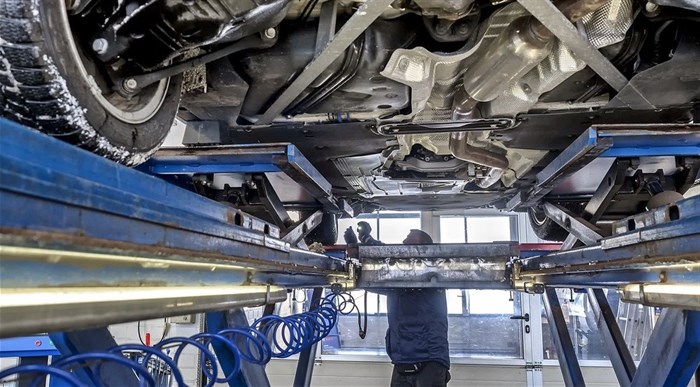
Top stories



HR & ManagementNational minimum wage 2026: What workers (and employers) need to know
Danelle Plaatjies and Ludwig Frahm-Arp 10 hours



More news




















Major crashes are defined in the report as those crashes where five or more people died as a result of the crash. Of the total 14,050 people who died in major fatal crashes in 2017, human factors contributed to nearly 90% of the crashes, the road environment 3.4% and vehicle factors 6.9%.
“Road accidents are not only costing South Africa lives but billions too,” says Jakkie Olivier, CEO of the Retail Motor Industry Organisation (RMI).
In August 2016, a Research and Development Report on the Costs of Crashes in South Africa was published by the CSIR Built Environment on behalf of the RTMC. According to this report, the total national Road Traffic Crash costs for 2015 amounted to almost R143bn, which translated to 3.4% of South Africa’s GDP.

“We strongly believe that the implementation of Periodic Vehicle Testing and Inspection (PTI) will yield great benefits to the country in terms of reducing the road deaths, creating jobs and stimulating the retail sector with the maintenance of vehicles in a safe and roadworthy condition,” he says.
Ferose Oaten, national chairperson of the RMI’s Vehicle Testing Association (VTA), says currently only 21% of the current registered vehicle population are required to be tested on a regular basis.
“We have a vehicle population of 12.4 million vehicles on our road, as at September 2018, according to the National Traffic Information System (NATIS). Trucks, buses and taxis, as well as vehicles which change ownership, make up the 21% of vehicles that require testing on a regular basis. 78.3% of the vehicle population has no requirement to be tested, no matter the age of the vehicle.”
South Africa has one of the highest number of fatalities from road crashes in the world and does not compare well to the countries with comparable developed infrastructure and vehicle population. Comparing South Africa to the other BRICS countries, and the rest of the developed world, South Africa’s road deaths per 100,000 of the population is the highest.
“Quite rightly, there are many interventions related to driver behaviour given the fact that the human factor is a contributory factor in nearly 90% of crashes,” says Olivier. “We do believe, however, that crashes as a result of vehicle factors cannot be ignored.” Within the vehicle factors section of the RTMC Road Fatality report, most major crashes occurred as a result of a tyre burst prior to the crash with a contribution of 54.3% in 2017, followed by brakes with a contribution of 13.5%. Other vehicle factors include smooth tyres, headlights blinding or faulty, and faulty steering.

Oaten says new vehicles are manufactured to the highest safety standards, and while new vehicles coming off the assembly line are safer now than ever before, in South Africa, our response to in-use vehicle inspection controls is not adequate. “Vehicles can age without changing ownership, and no vehicle test is required. Socio-economic factors are adding to this problem and vehicles are not being maintained. While the legislation for more frequent testing of vehicles has been gazetted, this is yet to be implemented at a date to be determined by the Minister of Transport.”
With a holistic approach to road safety, where interventions include vehicle inspection controls in a regular vehicle testing regime, other countries have shown a decrease in road deaths with the implementation of periodic vehicle inspection. Oaten highlights Turkey as an example of where PTI has been undertaken.
“PTI started in 2009, and was part of a new and holistic approach to road safety in Turkey. Excellent results have been posted by their Ministry of Transport over the years. In the first year of implementation they saw a reduction of 82,925 accidents and US$274m in savings. Since PTI was introduced they have achieved an annual average of 102,000 fewer accidents and an average savings of US$340m each year. While we are cognisant of the fact that South Africa is very different geographically, culturally and economically, we cannot sit back and allow 14,050 people to be killed without addressing this with a sense of urgency,” she says.
Olivier agrees saying should a vehicle be maintained in a roadworthy and safe condition, it will have a positive impact on road safety, and decrease the number of fatalities from road crashes. “While there are many road safety initiatives, Periodic Vehicle Testing will positively contribute to road safety, and will also promote a culture of compliance in other aspects of road safety. We strongly believe this should be included in the National Road Policy for implementation,” he concludes.